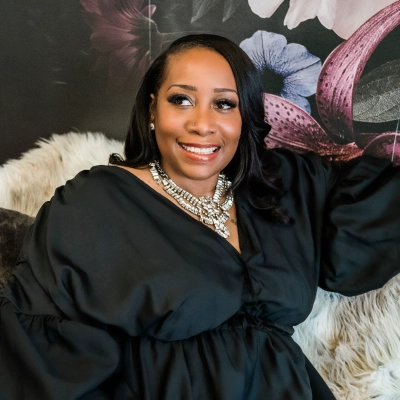10 Self-Care Practices for Couples Between Therapy Sessions
Maintaining relationship health between therapy sessions requires consistent effort and intention, as relationship experts consistently emphasize. This article presents ten practical self-care strategies that couples can implement to strengthen their connection during the everyday moments that matter most. These evidence-based practices, recommended by relationship specialists, offer tangible ways to sustain the progress made in therapy while building deeper intimacy in daily life.
Schedule Uninterrupted Check-ins Between Sessions
I recommend that couples schedule regular check-ins between sessions where each partner gets 5 uninterrupted minutes to express their feelings without interruption or criticism. Additionally, I encourage couples to ask each other open-ended, curious questions similar to those they might have asked when first dating, as this helps uncover deeper changes and needs within the relationship. I've observed these structured check-ins transform relationships by creating a safe space for vulnerable communication, allowing partners to feel truly heard without the defensive patterns that often emerge in unstructured conversations. When couples consistently practice this intentional listening, they report feeling more connected and understanding of each other's inner worlds, even during challenging periods in their relationship.
Establish Weekly Date Nights Without Work Talk
I strongly recommend that couples establish a weekly date night where work conversations are completely off-limits. This simple yet powerful practice creates a dedicated space for couples to reconnect on a personal level without the distractions of professional responsibilities. I've observed that when couples commit to this regular ritual, they develop deeper communication patterns by asking more meaningful questions like "What's been inspiring you this week?" rather than defaulting to work-related topics. The transformation often happens when partners rediscover aspects of each other they've been missing during their busy routines, strengthening their fundamental connection beyond their professional identities.

Take Mindful Walks and Journal Your Emotions
As a psychotherapist with experience supporting couples with various relationship challenges, I recommend to couples between sessions to take a mindful walk together or try journaling about any emotions that came up during sessions to review in the following session. These strategies create space for connection without distractions, encourages openness and honesty, and reduces stress. Through this process, I've seen couples come to their next session feeling more present, patient and in tune with their partner's emotions. This can strengthen intimacy and emotional closeness in their relationship.

Lead With Curiosity Instead of Criticism
The number one practice I recommend to couples (and individual clients struggling with their relationships) between sessions is to lead with curiosity. The simple switch from critical to curious instantly diffuses tension, lowers defensive reactions, and allows for open communication and increased understanding. When we approach each other from a place of curiosity, we are able to learn and grow together, rather than attack and judge.

Practice Daily Intentional Physical Touch
I often recommend that couples practice intentional physical connection through a daily ritual of extended hugs or mindful touch between sessions. This practice creates micro-moments of connection that help partners transition from individual stress to relationship presence, even during the busiest weeks. I've observed couples who commit to this simple practice reporting significantly improved emotional attunement and a greater sense of security in their relationship. The physical act of embracing for just a few seconds activates the parasympathetic nervous system, which helps partners co-regulate and feel genuinely reconnected even when other communication strategies may be challenging.

Use Reflective Listening to Ensure Understanding
I often recommend reflective listening as a powerful practice for couples between our sessions. This involves taking turns to fully listen to your partner express their thoughts or feelings without interruption, then reflecting back what you've heard to ensure understanding before responding. Over my twenty years as an Intimacy & Relationship Expert, I've witnessed reflective listening transform countless relationships by reducing misunderstandings and creating a foundation of mutual respect. When couples commit to this practice regularly, they develop deeper empathy and connection that extends beyond our counseling work.

Create Ten-Minute Transition Rituals After Work
I recommend couples practice a 10-minute "transition ritual" at the end of the workday, and its power lies in prioritizing individual regulation before demanding connection. The rule is simple: whoever finishes work first gets ten minutes of uninterrupted alone time. No questions about the day, no requests for help, no emotional dumping. Their partner's only job is to protect that space. Afterward, they switch.
This practice is transformative because it respects a fundamental neuropsychological need. We can't instantly switch from a high-stress "work brain" to a relaxed "partner brain." That transition is often where arguments ignite. The ten-minute buffer allows each person's nervous system to down-regulate—to let the cortisol from the workday recede before they try to connect with their partner, which requires vulnerability and presence.
I've seen this ritual completely eliminate the predictable evening argument for many couples. Instead of a tense and transactional handoff—"You deal with the kids, I've had a terrible day"—the greeting becomes one of genuine presence. It replaces resentment with mutual respect and shows that the best way to care for the relationship is by first allowing each partner to care for themselves.

Implement the No-Others-Zone for Focused Connection
A simple, but powerful self-care practice to use between sessions is something I call the No-Others-Zone. This is 5-15 minutes where a couple creates space for just them - no distractions, no interruptions, no responsibilities. During this time, they are fully present for each other. They might use the time to talk, to hold hands in silence, to snuggle - anything that enhances their connection.
This transforms relationships in several ways. It grows emotional intimacy between partners because they each feel prioritized, individually and as a couple. It also reduces the tendency to focus on the areas creating disconnect in the relationship, creating a foundation of bondedness to build from. The No-Others-Zone also reinforces trust and connection. Over time, couples experience more alignment and connection even among the busy or chaotic schedules of day-to-day life.
To make this happen, there are 5 steps:
1. Designate your space and time. Put it on your calendar to ensure it happens and create this as a consistent habit.
2. Be clear on the boundaries; for example, no phones, no TV, no work items.
3. Share with each other what you each need in the moment - to talk, to be held, to be fully present - whatever enhances your feeling of connection to your partner.
4. Consider wrapping up your time with value acknowledgement - one thing you appreciated about your partner that day or from your No-Others-Zone time.
5. Respect the boundaries of the No-Others-Zone. Allow it to be time-bound so you each know it is a quick reconnection, which allows time for other responsibilities, tasks, or people.

Nurture Self-Intimacy Through Personal Growth
"I often recommend self-intimacy, which involves intentional exploration, curiosity, and self-reflection. When individuals grant themselves permission to nurture their own growth, I have observed meaningful changes within the couple dynamic. Each partner is able to develop a stronger sense of self while also sustaining a healthy, engaged relationship."

Access Support Through Couples Therapy App
As a couples therapist, I often heard clients say that although therapy sessions were helpful, it was difficult to remember what they learned when it mattered most--during conflicts at home. Many wished they could consult with me in the moment. While I couldn't be there, I realized I could provide them with an app to support them outside of sessions and enhance the value of their therapy. When I saw that nothing like this existed, I decided to create one.
I worked with a developer to design the Couples Therapy Assistant (CTA), now available on the App Store and Google Play exclusively for licensed therapists and their clients. A key feature is that clients can ask questions in real time and receive instant, AI-powered responses. They also learn how their therapist can follow up in session and can choose to share their questions and answers directly. The app includes a daily check-in that prompts clients to reflect on their feelings about themselves and their relationship. Responses can be shared immediately with the therapist, and therapists can also upload resources and assignments accessible through the app.
More than 50 of my clients are using the CTA and have shared positive feedback. Some comments include: "Both my therapist and my wife can see how I'm doing throughout the day." "I get real-time answers that have practical applications in my life." "It gives me a sense of progress and a healthier way to vent frustration." "I don't have to wait for a session--I can pull out my phone and share the conversation with my therapist." "It keeps me connected to my partner and therapist." "It reminds me to check my feelings." "It's accessible and easy to use." "I like that I can ask a question when it's relevant."
The CTA is available on the App Store (https://apps.apple.com/us/app/couples-therapy-assistant/id6741782393) and Google Play (https://play.google.com/store/apps/detailsid=com.ctadelivery&utm_source=na_Med).


